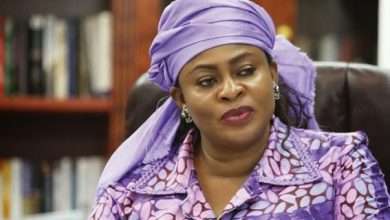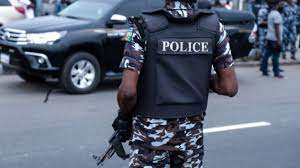
Officers attached to the Ogun State Police Command have arrested a teenager, Abosede Idowu, for allegedly killing her boyfriend, Aliyu Ibrahim, to death over N3,000.
The Police Public Relations Officer in the state, Abimbola Oyeyemi, said both Abosede and Ibrahim were seen struggling with a knife in the public before she allegedly stabbed him in the chest, which led to his death.
The PPRO stated, “The suspect was arrested following a distress call received from the Seriki Hausa in Sagamu that the suspect and her deceased boyfriend were arguing over the sum of N3,000 as a result of which they were struggling with each other with a knife and eventually, the girl used the knife to stab her boyfriend in his chest, which resulted in his death.
“On receiving the distress call, the DPO Sagamu, SP Okiki Agunbiade, detailed his detectives to the scene, where the suspect was apprehended.
“The bloodstained knife, which she used to stab the deceased, was also recovered.”
The PPRO added that Abosede, while being interrogated, claimed that she spent the night in the deceased’s apartment and when she was about leaving in the morning, she took the sum of N3,000 from his pocket.
Oyeyemi said the action of the suspect angered the deceased, who insisted on retrieving the money from his girlfriend.
According to him, the deceased was not ready to give her the entire N3,000 and that was what led to the argument between them.
“The suspect further stated that it was the deceased, who brought out the knife and while struggling with him, she knife stabbed him in his chest,” Oyeyemi added.
He said the remains of the deceased had been released to his relations on their demand for burial in accordance with Islamic rites.
Oyeyemi said the Commissioner of Police, Kenneth Ebrimson, had ordered the immediate transfer of the suspect to the homicide section of the State Criminal Investigation and Intelligence Department for further investigation and prosecution.






